Building Bridges: An Extraordinary Meal Creates Hope for One Syrian Refugee Family
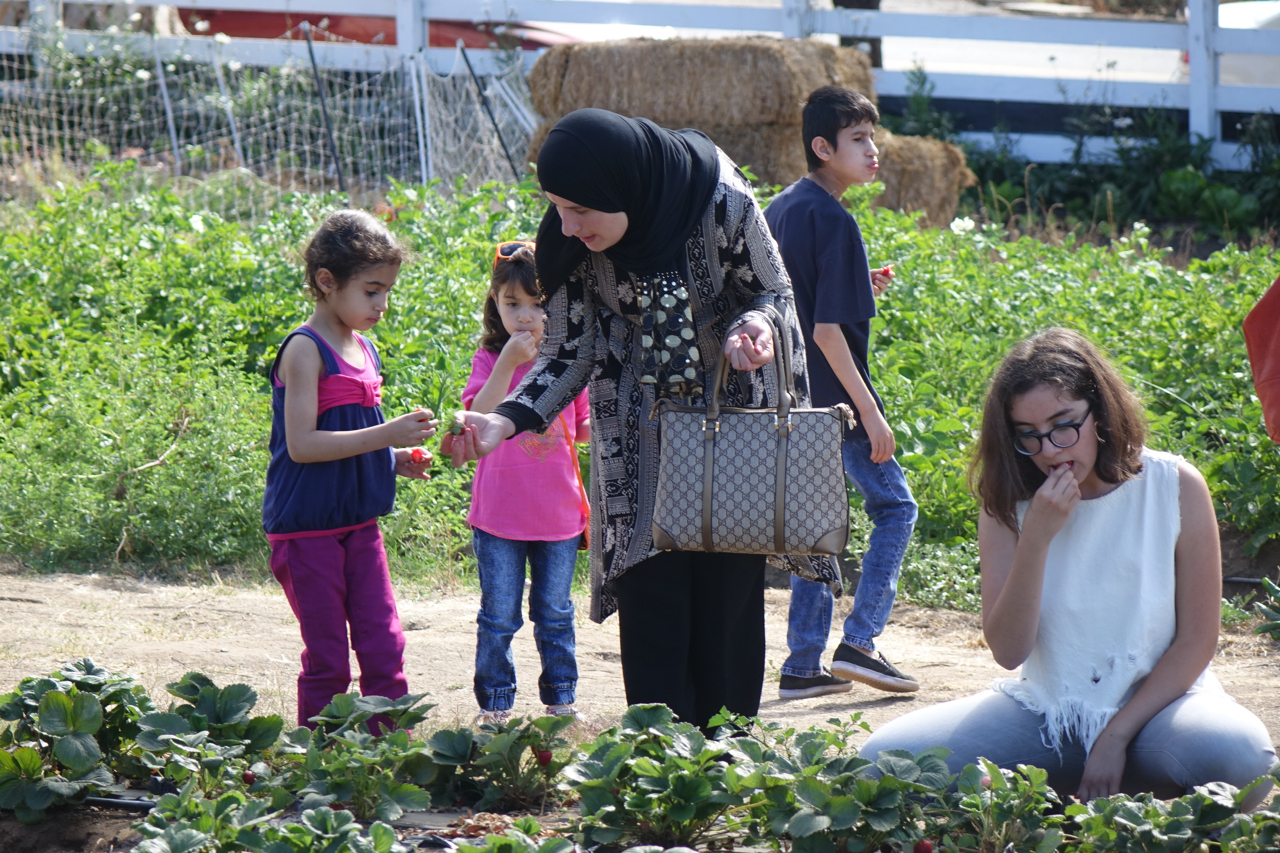
One of the most important things Leichtag Foundation strives to do is to build bridges. To connect nonprofits with each other, to connect resources to those in need, to connect the Jewish community with new opportunities to engage in their faith.
Foundation staff were honored and humbled to witness one extraordinary example of bridge-building just recently. It involved the organization’s refugee program, and happened as organically as the food produced at Coastal Roots Farm, which sits on the Leichtag Commons property.
It began just a few months earlier, when Raffael Lomas, an Israeli artist and TED fellow, visited Leichtag Commons as an Israeli artist-in-residence, and learned of the foundation’s deep commitment to welcome Syrian refugees who have resettled in San Diego.
Raffael passionately believes that creativity is a powerful tool for social good, and he found a perfect spot at Leichtag Commons to make it happen. Working with foundation staff, he converted a barn into a beautiful, rustic art studio to help refugees not just express themselves, but to regain a sense of their own humanity in the process. To build a bridge from their current situation to a new, more hopeful future.
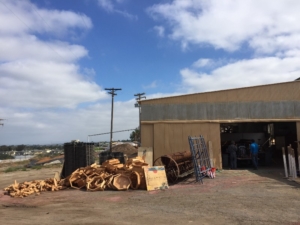 The next step was to find the right person to use the space. Thanks to Iman Bakour-Aziz, Syrian Refugee Initiative Outreach Coordinator for Jewish Family Service of San Diego, it didn’t take long. Abdullah Taysan had spent his time creating beautiful crown molding before he, his wife and his four children were forced to live in refugee camps in Jordan for three years. Just a few weeks before, the family had made it to the United States, resettling in City Heights. Raffael decided to pay them a visit, returning with a solemn new perspective on the crisis.
The next step was to find the right person to use the space. Thanks to Iman Bakour-Aziz, Syrian Refugee Initiative Outreach Coordinator for Jewish Family Service of San Diego, it didn’t take long. Abdullah Taysan had spent his time creating beautiful crown molding before he, his wife and his four children were forced to live in refugee camps in Jordan for three years. Just a few weeks before, the family had made it to the United States, resettling in City Heights. Raffael decided to pay them a visit, returning with a solemn new perspective on the crisis.
“What touched me the most was seeing that, in some ways, Abdullah and his family were still not free.” Raffael said. “They were still in shock from their time in the camps. They didn’t speak English and they never left their small apartment as a family. It was a big difference from the situation many of us live in.”
Raffael believed that the new studio would allow Abdullah to use his creativity as a tool to help himself and his family. He also knew there was more bridge-building, and more trust-building to do before this could happen. Which is why his next step was to invite Abdullah and his family to share in a meal at Leichtag Commons.
The family arrived on a Sunday in July. At first they were tentative and shy, but then something changed. The group was taken on a tour of Coastal Roots Farm, where they picked the lettuce, cucumbers and tomatoes they would use to create a salad together. Iman and her daughter translated, naming the produce in both Arabic and Hebrew. Food became the common language. Abdullah said the farm reminded him of happy childhood memories on a farm with his grandparents, and he took delight in watching his children enjoy themselves.
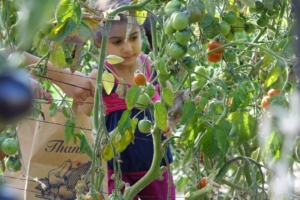 “When I saw my girls pick some tomatoes and eat them, I felt happiness in my heart,” said Abdullah. “It was a wonderful thing, to find people like these. It was amazing.”
“When I saw my girls pick some tomatoes and eat them, I felt happiness in my heart,” said Abdullah. “It was a wonderful thing, to find people like these. It was amazing.”
The entire group worked together that day, equals at the table as they created and enjoyed their meal together. As the day progressed, friendships formed.
“By the end of the day we no longer felt like these people were strangers,” said Abdullah. “We felt like we’d spent the day with friends and family.”
The experience of that afternoon impacted everyone around the table, building more bridges than anyone, including Raffael, could have possibly imagined. “Abdullah is from Syria and I’m from Israel,” said Raffael. “We are from enemy states, but for me personally this was a remarkable encounter with a brave, beautiful person.”
Today, Abdullah comes to Leichtag Commons twice each week to create his art. Before Raffael returned to Israel, the two could often be found working side-by-side. Even when there were no translators available, they both say they could still communicate. They just did so through gestures and laughter, through the common language of living and creating.
Now, others join Abdullah in the studio to express their own creativity. “I have found wonderful people in the space,” said Abdullah, as he gestured around the barn where he now creates. “An artist needs a place to relax, to be free to work. I found this here.”
Rabbi Nachman of Bratzlov once said: ‘The whole world is a very narrow bridge; the most important thing is not to be afraid.” That special day in July brought together brave people who didn’t just build bridges, but who also walked across them and found new connections, and new hope, on the other side.
The Leichtag Foundation continues to be humbled by the role it plays in the building of bridges in the community, looking ahead with energy and anticipation for the bridges that are yet to come.
See the full story of “Refugee Artists-in-Residence” on Medium.
From Syria to San Diego: A Family’s Journey
The family of six resettles in San Diego including two developmentally disabled children who will receive services for the first time in their lives.
via NBC 7 San Diego
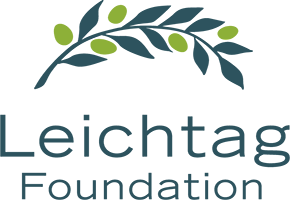
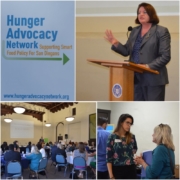
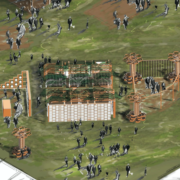
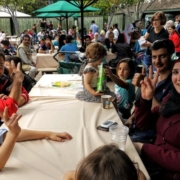
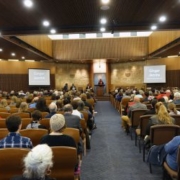
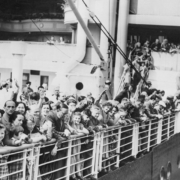
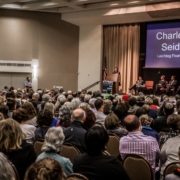



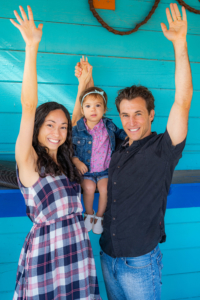
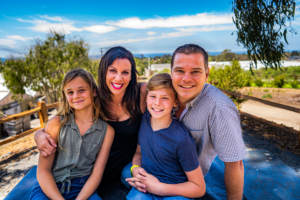
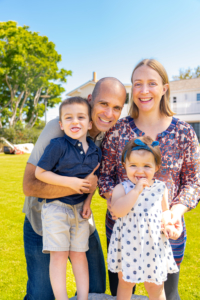 Stacie and Jeff Cook understand commitment. They live it.
Stacie and Jeff Cook understand commitment. They live it.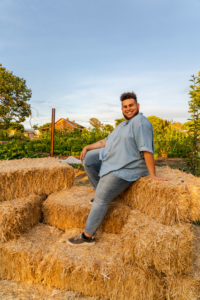 Black, Jewish and Queer. These three identities weave the fabric of who I am, but it took a long time to believe that they could exist together.
Black, Jewish and Queer. These three identities weave the fabric of who I am, but it took a long time to believe that they could exist together.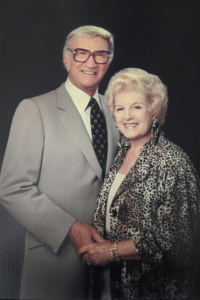 Lee and Toni Leichtag established the Leichtag Foundation in 1991 following the sale of their business. Lee and Toni were lifelong entrepreneurs with a passion for innovation and for supporting talent. They believed that only with big risk comes big reward. Both born to families in poverty, Toni to a single mother, they strongly believed in helping those most in need and most vulnerable in our community. While they supported many causes, their strongest support was for young children and the elderly, two demographics who particularly lack voice in our society.
Lee and Toni Leichtag established the Leichtag Foundation in 1991 following the sale of their business. Lee and Toni were lifelong entrepreneurs with a passion for innovation and for supporting talent. They believed that only with big risk comes big reward. Both born to families in poverty, Toni to a single mother, they strongly believed in helping those most in need and most vulnerable in our community. While they supported many causes, their strongest support was for young children and the elderly, two demographics who particularly lack voice in our society.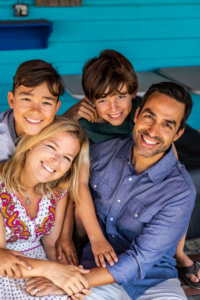 Lifelong Baltimoreans, Rabbi George and Alison Wielechowski and their sons, 11-year-old Lennon and 9-year-old Gideon, are more than pursuing the good life in Southern California. Having moved to San Diego more than three years ago, they are fulfilling a lifelong dream.
Lifelong Baltimoreans, Rabbi George and Alison Wielechowski and their sons, 11-year-old Lennon and 9-year-old Gideon, are more than pursuing the good life in Southern California. Having moved to San Diego more than three years ago, they are fulfilling a lifelong dream.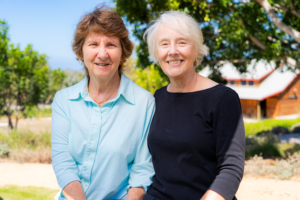
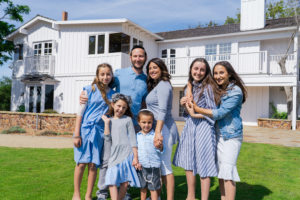
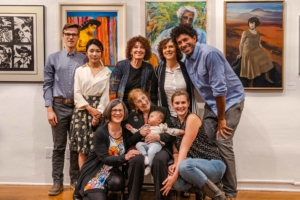
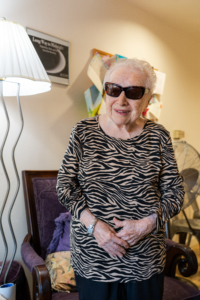
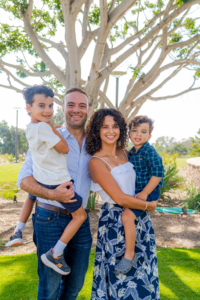
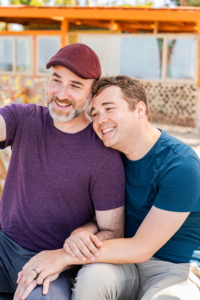
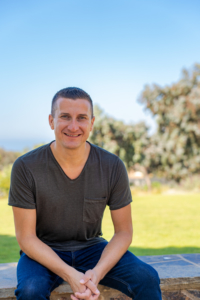 You would think that as the executive director of San Diego LGBT Pride, Fernando Zweifach López Jr., who uses the pronoun they, has done all the coming out they possibly can. A queer, non-binary individual who has worked for many years on civil rights issues, López also speaks openly and often about their father’s family, Mexican-American migrant workers who tilled the fields of rural California.
You would think that as the executive director of San Diego LGBT Pride, Fernando Zweifach López Jr., who uses the pronoun they, has done all the coming out they possibly can. A queer, non-binary individual who has worked for many years on civil rights issues, López also speaks openly and often about their father’s family, Mexican-American migrant workers who tilled the fields of rural California.